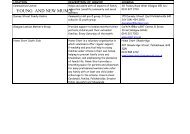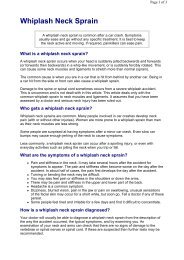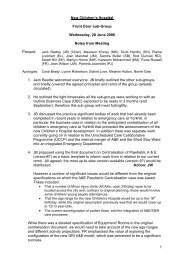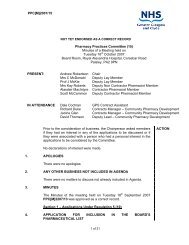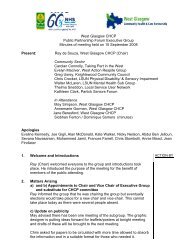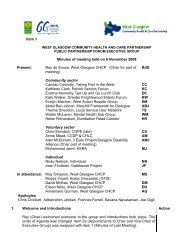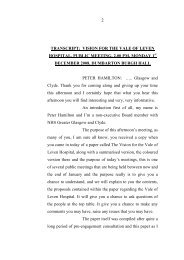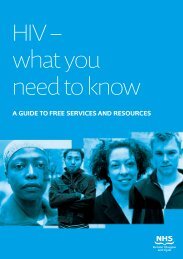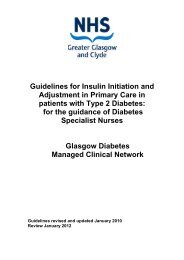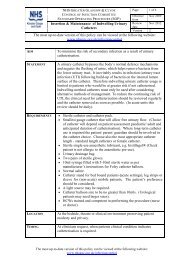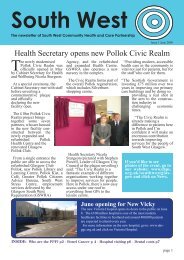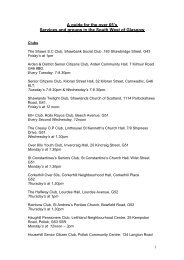Agenda for change - Terms and conditions handbook
Agenda for change - Terms and conditions handbook
Agenda for change - Terms and conditions handbook
Create successful ePaper yourself
Turn your PDF publications into a flip-book with our unique Google optimized e-Paper software.
Part 2: Pay Section 6: Career <strong>and</strong> Pay Progression<br />
__________________________________________________________________________<br />
KSF post outline, without continued supervision <strong>and</strong> support<br />
inappropriate to the post.<br />
Career Development Moves<br />
6.28 Where a member of staff moves to another job in the NHS covered by<br />
this agreement, where the necessary arrangements to support the<br />
operation of the gateways are in place, pay progression will normally<br />
depend on demonstrating the knowledge <strong>and</strong> skills specified in the<br />
KSF outline <strong>for</strong> the post within the first twelve months of<br />
appointment.<br />
6.29 Where, however, an individual re-trains in a different area of work <strong>for</strong><br />
wider service or operational reasons with the explicit agreement of the<br />
employer concerned, their existing level of pay should be protected.<br />
Once protection is agreed, it may not be withdrawn until the person<br />
concerned has had a reasonable opportunity to complete their retraining<br />
<strong>and</strong> progress to a point where pay protection is no longer<br />
required. Explicit employer agreement in this context cannot however<br />
be deemed to have been given solely because the employer has<br />
agreed to re-employ someone following redundancy.<br />
Temporary Movement Into a Higher Pay B<strong>and</strong><br />
6.30 Individuals may be moved into a higher pay b<strong>and</strong> where it is necessary<br />
to fill a post on a temporary basis when a vacancy is unfilled, but being<br />
advertised, or the post is being held open <strong>for</strong> someone who is due to<br />
return, e.g. from long-term sick leave, maternity leave, or from<br />
extended training.<br />
6.31 Pay should be set either at the minimum of the new pay b<strong>and</strong> or, if this<br />
would result in no pay increase (by reference to basic pay plus any<br />
recruitment <strong>and</strong> retention premium if applicable) the first pay point in<br />
the b<strong>and</strong> which would deliver an increase in pay. Temporary<br />
movement into a new pay b<strong>and</strong> should not normally last more than six<br />
months or less than one month except in instances of maternity leave<br />
or long-term sick leave where a longer period may be known at the<br />
outset. In circumstances where the individual is not required to carry<br />
out the full responsibilities of the post, pay will be determined by job<br />
evaluation.<br />
6.32 Where temporary movement into a higher pay b<strong>and</strong> results in only one<br />
extra pay point the incremental date remains the same. Where<br />
temporary movement results in more than one extra pay point the<br />
incremental date <strong>for</strong> the period of the temporary movement becomes<br />
the date the movement began.<br />
___________________________________________________________________________________<br />
<strong>Terms</strong> <strong>and</strong> Conditions of Service H<strong>and</strong>book




